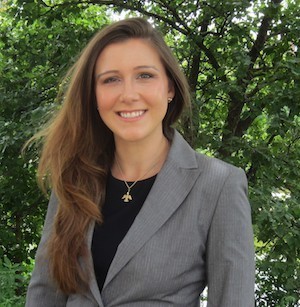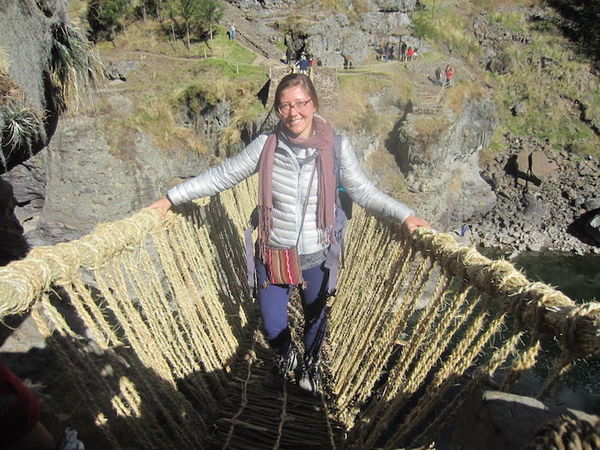Medievalist Grad Finds Rewarding Work in Public Humanities

Erica Machulak ('17) wanted to use her degree to take action. She found a perfect fit in public humanities as a Research Development Officer at the University of British Columbia in Vancouver, BC. Her work will be crucial for Canadian academics in the humanities—and for the communities they partner with.
Machulak, who earned her Ph.D. in English Literature, has been coordinating UBC's support for faculty applying for the "Partnership Engage Grant" and other opportunities sponsored by the SSHRC (the Social Sciences and Humanities Research Council). The SSHRC funds academic research, much like the United States’s NEH (National Endowment for the Humanities), and many researchers in Canada depend entirely on these grants. “To be successful as a Canadian professor of the Humanities,” noted Kathryn Kerby-Fulton, Machulak’s dissertation supervisor, “you must have SSHRC grants, and you must have plenty.”
The new project, Partnership Engage Grants, is, as Machulak describes, “aimed at pairing up academics with communities, nonprofits, the public sector, and industry to solve immediate problems. Because the grants are focused on supporting reciprocal relationships between academics and their partners, the partners get more agency to help steer the research toward immediate public good.”
She is also co-coordinating a series called "Forging Effective SSH Partnerships with Non-Academic Organizations" with her department (Support Programs to Advance Research Capacity, or SPARC, a division of the Vice-President Research and Innovation Office), the Faculties of Arts and Education, and the Community Engagement Office at UBC.

Most medievalists are by necessity multilingual and Machulak is no exception. In her doctoral research, she examined the reception of Arabic sources in medieval English culture, completing a dissertation entitled ""Is He a Clerk, or Noon?": Arabic Sources, Vernacular Aristotelianism, and Authorial Responses to the Evolving Social and Intellectual Context of Later Middle English Literature." Her abilities in Spanish have allowed her to work freelance as a Spanish-to-English translator as well as to conduct on-site research in Peru as an intern for the NEH. This research concerned endangered Indigenous languages in the Quechua family, which, Machulak wrote in a 2017 article for the NEH's Magazine Humanities, are “at risk of being erased” as speakers face pressure to use Spanish. Machulak first developed an interest in Quechua traditions and the Inca while studying in Ecuador.
Machulak’s interdisciplinary training and multilingual interests made her an excellent fit for her new position at UBC, which as part of their “Strategic Plan” has an explicit goal of “partner[ing] with Indigenous communities on and off campus to address the legacy of colonialism and to co-develop knowledge and relationships.”
“I am particularly excited about the potential that these grants have to foster symbiotic relationships between academics and First Nations, Inuit, and Métis communities,” she said.